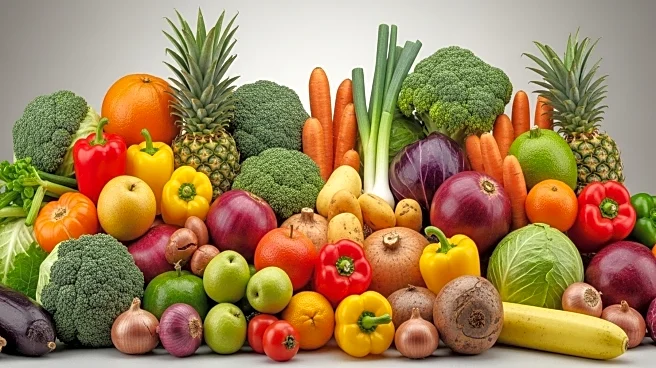What's Happening?
Recent studies published in ACS journals reveal innovative ways to repurpose food waste into valuable resources for agriculture and medicine. Researchers have found that sugar beet pulp can reduce pesticide use, coconut fibers can replace peat moss, radish leaves can support gut health, and beet greens can supply bioactive ingredients. These findings demonstrate the potential of food waste to offer eco-friendly solutions and beneficial compounds.
Why It's Important?
The discovery of valuable resources in food waste highlights the potential for sustainable practices in agriculture and medicine. By repurposing waste materials, researchers are providing alternatives to conventional methods that often rely on synthetic chemicals and non-renewable resources. This approach not only reduces environmental impact but also promotes health benefits, offering a dual advantage for society.
What's Next?
Further research and development could lead to the commercialization of these findings, making them accessible to farmers and healthcare providers. The adoption of these eco-friendly solutions may encourage more industries to explore sustainable practices, potentially leading to a shift in how waste is managed and utilized. As awareness grows, there may be increased investment in research focused on repurposing waste materials.
Beyond the Headlines
The studies underscore the importance of innovation in addressing environmental and health challenges. By transforming waste into resources, researchers are challenging traditional perceptions of waste management and demonstrating the value of interdisciplinary approaches. This could lead to broader discussions on sustainability and the role of science in driving positive change.










